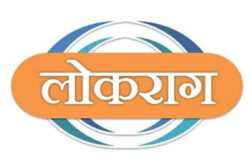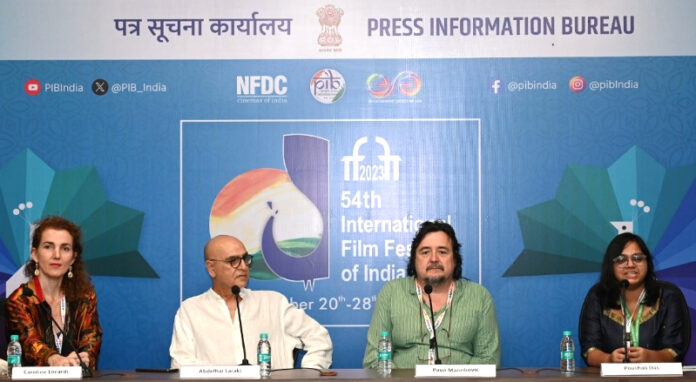Fez Summer’ 55 portrays the Moroccan freedom struggle through the eyes of a child, said Director Abdelhai Laraki while interacting with delegates and media at the 54th International Film festival of India (IFFI) here in Goa today. The film which had its Asian premiere at IFFI 54 is made in Arabic and French language.
Fez Summer’ 55 is a political drama that explores the tumultuous events of the Moroccan struggle for independence in the summer of 1955. Kamal, a 11-year-old boy of the ‘Medina of Fez’, is experiencing the last months before Morocco’s independence. In contact with Aïcha and her fellow students of the Qaraouiyine University, he discovers and takes part in the fight for freedom.
Director Abdelhaï Laraki is known for tackling sensitive themes in works that have been hailed by critics and acclaimed by audiences. The common thread running through his films is a reflection on people’s relationship with history, power and religion. Fez Summer’55 also explores these themes in the backdrop of the Moroccan struggle for independence which turned violent when the French executed Moroccan nationalists in Casablanca.
Talking about his inspiration for the movie, Laraki explained how it was very close to his heart. “I was born in this very Medina of Fez, grew up in the neighbouring city which was a film-loving one” he shared. He wanted to recreate a brief part of the Moroccan history and interviewed real-life resistance fighters to understand their story. “One of them told me an anecdote – about how as a child he had taken part in the resistance. That was the moment I knew how to approach the subject – through the eyes of a child,” he added. Laraki said he was more interested in the innocent child who would choose the ideology for a higher goal of freedom for Morocco.
According to him, the medina of Fez (medina means city in Arabic) is itself a character in the film. The rooftop is a significant feature, as it brings out the stark difference between the life of Moroccan women and children on the rooftop, and that of French colonialists and freedom fighters in the dark alleys below. The inhabitants of Fez bring their soul to it. Keeping identity as a theme, he places Fez, a closed space with open sky, as a metaphor for Morocco and for all places in the world that were colonized.
The director also feels that this theme is all the more pertinent in today’s times when we deal with a renewed debate on neo-colonialism in the erstwhile colonized countries. “History repeats itself today in Gaza”, he says. The 11-year-old boy is also a symbol in that way – a symbol of today’s Morocco, arriving to its true independence, he added.
About the Director:
Abdelhaï Laraki is known for tackling sensitive themes in works that have been hailed by critics and acclaimed by audiences. He belongs to the new wave of Moroccan filmmakers of the 1990s. His cinema deals with political repression (Mona Saber, 2002), the power of money (Parfum De Mer, 2006) or sexual frustration (Love In The Medina, 2011). At the core of Love… is the debate on ‘Art Propre/Art sale’ that raged during the Arab Spring. The common thread running through his films is a reflection on human’s relationship with history, power and religion.

















